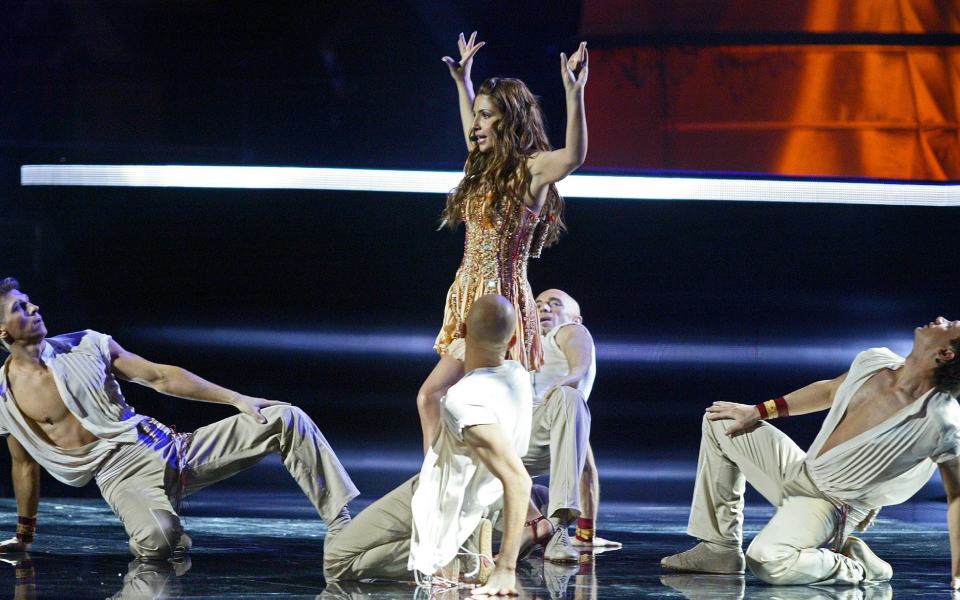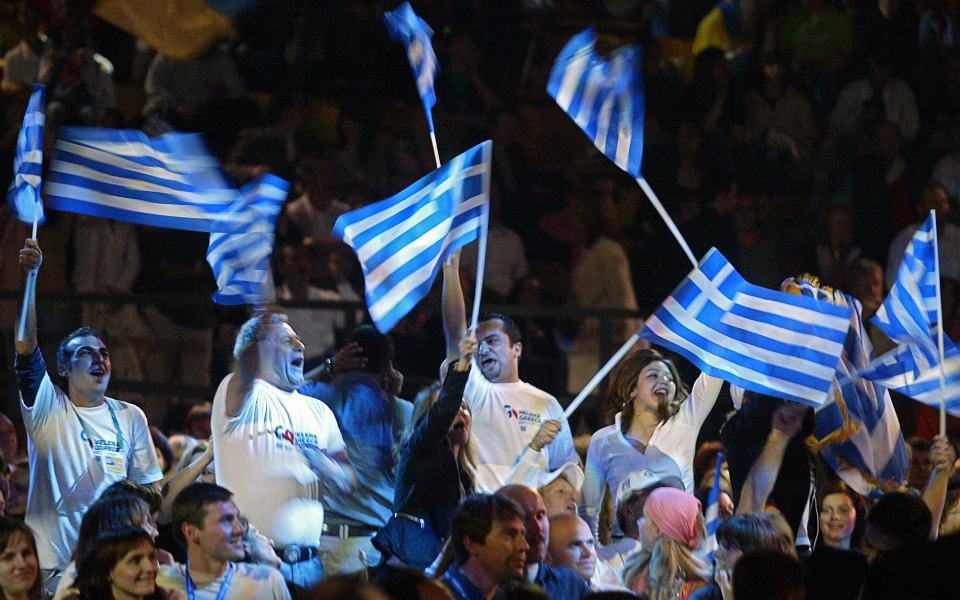By Pantelis Tsompanis
Fewer than 80 days remain for Europe’s biggest song contest. The 65th Eurovision Song Contest will be held in Rotterdam, the Netherlands, between May 18-22, and fans are waiting anxiously for this year’s edition, following the cancelation of last year’s contest due to the pandemic.
Over the last few weeks, most of the 41 participating countries have selected the artists will represent them, many through national competitions. Some countries have chosen to send the same artists that were planned for the 2020 contest, without requiring a new selection.
The national Greek broadcaster, ERT, has chosen this second path, and announced that 18-year-old Stefania Liberakakis, known simply as Stefania, will be the 2021 Greek representative. She will perform the song “Last Dance”, a composition by Sharon Vaughn, Arcade and Dimitris Kontopoulos, the last of whom is a frequent participant the competition, having composed previous Greek, Russian, Azeri, Belorussian, Ukrainian and Moldovan song entries.
Stefania will work under the artistic direction of Fokas Evangelinos, who is well-known among Eurovision fans and delegations. The song will be presented officially on March 10, through ERT’s platforms.

© Ert
Stefania was born and raised in Utrecht in the Netherlands. Her family originates from a village in Evros, close to the Greek border with Turkey. In 2013, she participated in the Dutch talent show “The Voice Kids”. In 2016, she was chosen, along with two more girls, to represent the Netherlands in the 2016 Junior Eurovision Song Contest. They formed the band “Kisses” and their song “Kisses and Dancin’” placed 8th out of 17.
Since her first Eurovision participation, she has recorded four singles, starred in Dutch TV series and films, and participated in the 2019 MAD Video Music Awards in Athens. In 2020, she was chosen by an ERT committee to represent Greece at the 64th Eurovision Song Contest, with the song “Supergirl”.
Days after the official song was released, the European Broadcasting Union (EBU) announced the cancelation of the 2020 song contest. According to the rules of the competition, the participating countries must select a new song for this year’s contest, despite not having performed the previous song on Eurovision’s stage.

© AP Photo/Sergey Ponomarev
Greece at Eurovision
Greece debuted at the Eurovision Song Contest in 1974, the year ABBA won with their big hit “Waterloo”, with Marinella being the first Greek singer to represent the country at the competition. Her song “Krasi, Thalassa kai to Agori Mou” (Wine, Sea, and my Boyfriend) placed 11th out of 17 entries.
In the 80s and the 90s, Greece was one of the least successful countries at the contest, causing the interest of Greek viewers to dwindle. In 2001, the Greek-Swedish duo, Antique, placed 3rd with the song “Die for You”. Enthusiasm in Greece spiked, and subsequent participations have been considered a “national matter” in the Greek media.
In 2005, Greece won the Eurovision song contest for the first and only time to date. One of the members of Antique, Helena Paparizou, singing the hit “My Number One” topped the leaderboard. It was also later selected as the fourth most popular song of all Eurovision song contests at the 50-year anniversary show, “Congratulations”.
In 2006, Eurovision was held for the first time in the Greek capital. The pop diva, Anna Vissi, represented Greece for this historic occasion and finished 9th out of 25.

© AP Photo/Thanassis Stavrakis
Between 2001 and 2009, Greece was among the most successful countries in the contest. It’s entries followed the “ethno-pop” recipe, a mix of pop sounds and ethnic elements. This strategy met with diminishing returns in the subsequent decade, and Greece has been scoring relatively poorly in recent years, even failing to make it out of the semifinals in 2016 and 2018.
Despite the failures to make the finals and the current diminished media interest, the contest’s popularity among young people and the LGBTQI+ community remains strong.
The night of the Eurovision Song Contest Final is an opportunity for fun; groups of excited Eurofans gather and throw parties, dressing up and putting up flags from all countries. We can say for sure, after two difficult years since the last Eurovision contest was held in Tel Aviv, that this year’s contest will be nothing short of a celebration.











